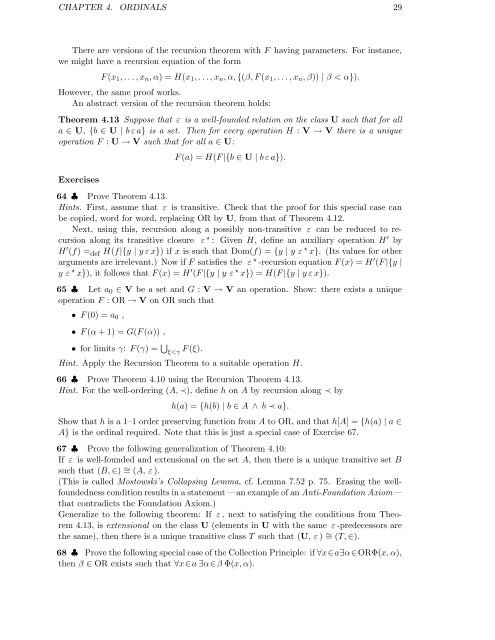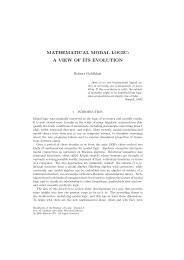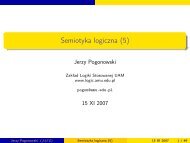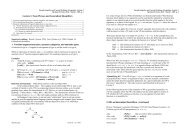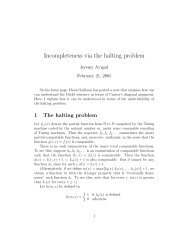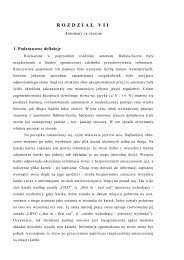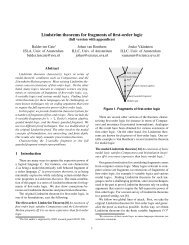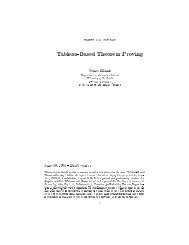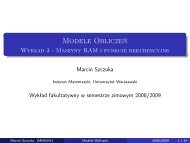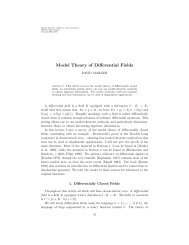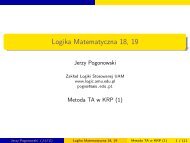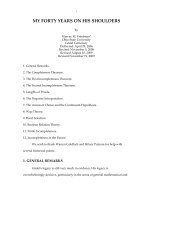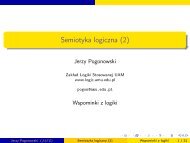Zermelo-Fraenkel Set Theory
Zermelo-Fraenkel Set Theory
Zermelo-Fraenkel Set Theory
Create successful ePaper yourself
Turn your PDF publications into a flip-book with our unique Google optimized e-Paper software.
CHAPTER 4. ORDINALS 29<br />
There are versions of the recursion theorem with F having parameters. For instance,<br />
we might have a recursion equation of the form<br />
F (x 1 , . . . , x n , α) = H(x 1 , . . . , x n , α, {(β, F (x 1 , . . . , x n , β)) | β < α}).<br />
However, the same proof works.<br />
An abstract version of the recursion theorem holds:<br />
Theorem 4.13 Suppose that ε is a well-founded relation on the class U such that for all<br />
a ∈ U, {b ∈ U | b ε a} is a set. Then for every operation H : V → V there is a unique<br />
operation F : U → V such that for all a ∈ U:<br />
Exercises<br />
F (a) = H(F |{b ∈ U | b ε a}).<br />
64 ♣ Prove Theorem 4.13.<br />
Hints. First, assume that ε is transitive. Check that the proof for this special case can<br />
be copied, word for word, replacing OR by U, from that of Theorem 4.12.<br />
Next, using this, recursion along a possibly non-transitive ε can be reduced to recursion<br />
along its transitive closure ε ⋆ : Given H, define an auxiliary operation H ′ by<br />
H ′ (f) = def H(f|{y | y ε x}) if x is such that Dom(f) = {y | y ε ⋆ x}. (Its values for other<br />
arguments are irrelevant.) Now if F satisfies the ε ⋆ -recursion equation F (x) = H ′ (F |{y |<br />
y ε ⋆ x}), it follows that F (x) = H ′ (F |{y | y ε ⋆ x}) = H(F |{y | y ε x}).<br />
65 ♣ Let a 0 ∈ V be a set and G : V → V an operation. Show: there exists a unique<br />
operation F : OR → V on OR such that<br />
• F (0) = a 0 ,<br />
• F (α + 1) = G(F (α)) ,<br />
• for limits γ: F (γ) = ⋃ ξ


